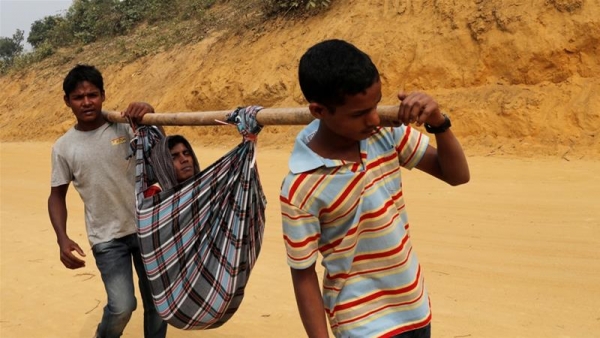A report titled ‘Remarking Rakhine State’, published on March 12 by Amnesty International, has provided new evidence of the grave violations of human rights happening in the Burmese state. The report compares aerial shots taken in 2016, 2017 and 2018, showing how Rohingya villages have been burnt to the ground and replaced by national security facilities. In January, Bangladesh and Myanmar have signed an agreement for the repatriation of the nearly 700’000 Rohingya refugees who fled from the violence burst in Rakhine state after the attack carried out by the Arakan Rohingya Salvation Army (ARSA) on 25 August 2017. Nevertheless, the new evidence presented in this report sends a message that is far from welcoming for the Muslim refugees.
The crisis began with the retaliation of the government against the Muslim ethnic minority started after the attack in August 2017 and, according the United Nations’ (UN) Special Rapporteur on Myanmar, “bears the hallmarks of genocide.” Violence against civilians consisted in arsons, killings, rape and torture carried out by Burmese soldiers and vigilante gangs. More than 650.000 Rohingya people have been displaced in only six months to the bordering Bangladesh, where they now fear for their safety due to the threat of monsoon and landslides. Now, new evidence shows how the lands from where they were forced to escape are being made inhospitable for their return. Apart from its ‘alarming militarisation’, ethnic Rakhine migrants are now settling in some of the lands where the Rohingya once lived.
The international community has lately urged to take action against the human rights violations taken place in Myanmar. The UN human rights chief has called for the atrocities to be prosecuted before the International Criminal Court (ICC). Rohingya people have no granted citizenship and the repatriation cannot happen voluntarily before the recognition of their rights. Hence, the signed accord between Bangladesh and Myanmar is, under these conditions, not likely to produce any result in the direction of peace.
To know more, please read:
http://www.bbc.com/news/world-asia-43367720
http://ucdp.uu.se/#country/775
http://ucdp.uu.se/#/nonstate/11054
https://www.aljazeera.com/news/2018/03/myanmar-investigated-crimes-rohingya-180309105233347.html
http://www.bbc.com/news/technology-43385677
https://www.nytimes.com/2018/01/27/world/asia/myanmar-military-ethnic-cleansing.html







